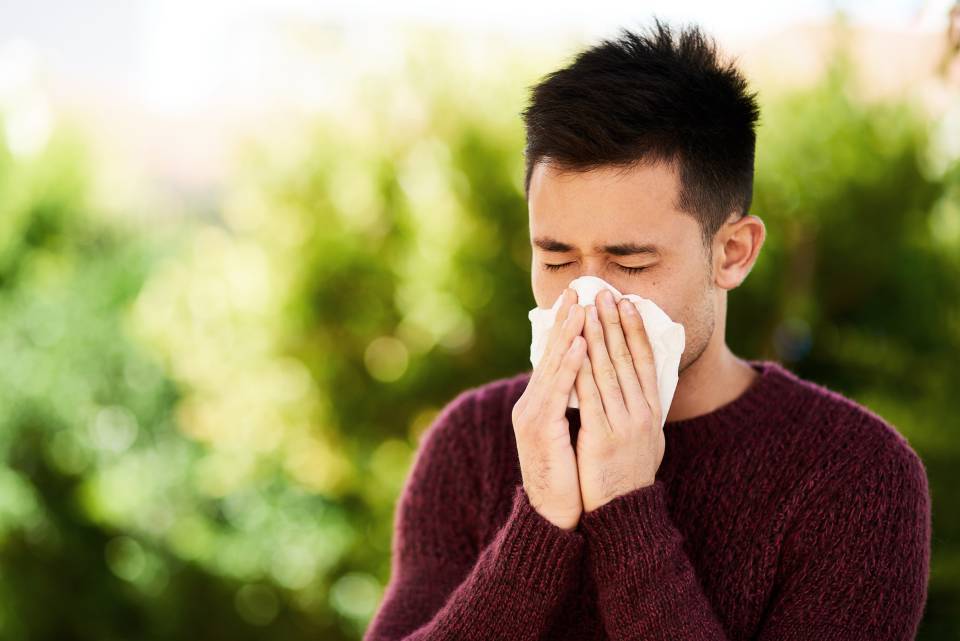Frequently Asked Questions into Allergy
The difference is that an allergy is a specific immune reaction; the body reacts against a substance it considers harmful whereas an intolerance is mediated by a metabolism unable to process certain food compounds. It is a biochemical, enzymatic disorder.
Although we refer to a dust allergy, we actually mean an allergy to the mites. Dust comprises organic and inorganic material: mites are the greatest proportion of the organic material although it sometimes also includes other organic material such as fungal spores. Therefore, people who have an allergy to dust are most often allergic to the mites.
It depends on the allergen that causes the allergic reaction and the onset age of the allergy. The most prevalent allergy in a child under three years is a food allergy, specifically to milk protein and eggs. Over 50-60% of these children cease to have these allergies after 4-5 years old. Conversely, allergies to food whose onset occurs in second stage of childhood or adulthood are usually a food allergy that lasts a lifetime. Respiratory allergy, or allergen sensitisation, lasts throughout life. Another point to note is the clinical manifestations that this sensitisation entails since, with age, the intensity of symptoms can be modulated. Allergies to medications also last a lifetime, although there are studies indicating that some patients who are allergic to certain medications may be self-limiting over time. Allergies to bee or wasp venom are chronic, although treatment with specific immunotherapy is able to reverse this immune response.
Once the monthly doses are being administered and the patient has tolerated the vaccines well, they should not be suspended. In fact, vaccines are a treatment whose purpose is to control the natural course of allergic respiratory disease, called either rhinoconjunctivitis, asthma or both. This ensures the disease is not exacerbated and does not require medications to control it and is therefore actually beneficial for pregnant women. What you cannot do however, is start a vaccine or specific immunotherapy treatment when the patient is pregnant.
Vaccines for respiratory allergies can be prescribed from approximately three years old, provided they are indicated. There are oral tolerance induction procedures for food allergies, called oral immunotherapy, which can also be initiated in early childhood. We could therefore say that vaccines are favourable at virtually any age, when indicated.
Yes. In fact, in order to be allergic to a medication, the patient must have taken it more than once already to have become sensitised to it. The onset of an allergy can appear from a sensitisation that can occur from the first, second or 500th dose.
Second-generation or non-sedating antihistamines, which are those used to treat respiratory allergy, rhinitis, conjunctivitis and even hives have a very good safety profile in terms of not causing drowsiness. Even so, whether they cause drowsiness or not will depend on the patient's susceptibility.
Any pollen can cause allergies. What is certain is that the pollens that most frequently cause allergies are those whose pollination is transported by air currents (anemophilous pollination), as they are in the air for a long time, which exposes them to people more. Conversely, those pollens that, due to their physical characteristics, are not transported by air, but fall to the ground and whose pollination occurs through insects (entomophilous pollination) are much less allergenic because they are not in the air long enough to sensitise or cause respiratory symptoms.
Whenever there is a life-threatening reaction. This refers to when there is a certain collapse of the respiratory tract, either because the bronchus, the glottis has closed or because there is a collapse of the cardiovascular system (hypotension), as that can lead to a loss of consciousness, dizziness or loss of stability. It is also indicated when there is a gastrointestinal symptom, vomiting, abdominal cramps, acute stomach pain or diarrhoea, provided these symptoms are very acute and directly associated with the wasp or bee sting. They normally occur before or simultaneous to clinical manifestations on the skin, such as itchiness, which makes it easy for the patient to identify. Unfortunately, sometimes the situations requiring adrenaline lack the clinical manifestations on the skin, making it more difficult for the patient to identify.
It might be. One of the most frequent symptoms of food allergies is called oral allergy syndrome: itching around the mouth, lips, inside the mouth, throat and there may even be mild oedema of the lips. Although mouth itching might be a symptom of a food allergy, it does not mean that you are allergic to all foods that cause an itchy mouth. This symptom must be distinguished between itching, a burning sensation or the feeling you get from consuming spicy foods.
Types of allergies
Substantiated information by:


Published: 24 July 2019
Updated: 24 July 2019
Subscribe
Receive the latest updates related to this content.
Thank you for subscribing!
If this is the first time you subscribe you will receive a confirmation email, check your inbox


